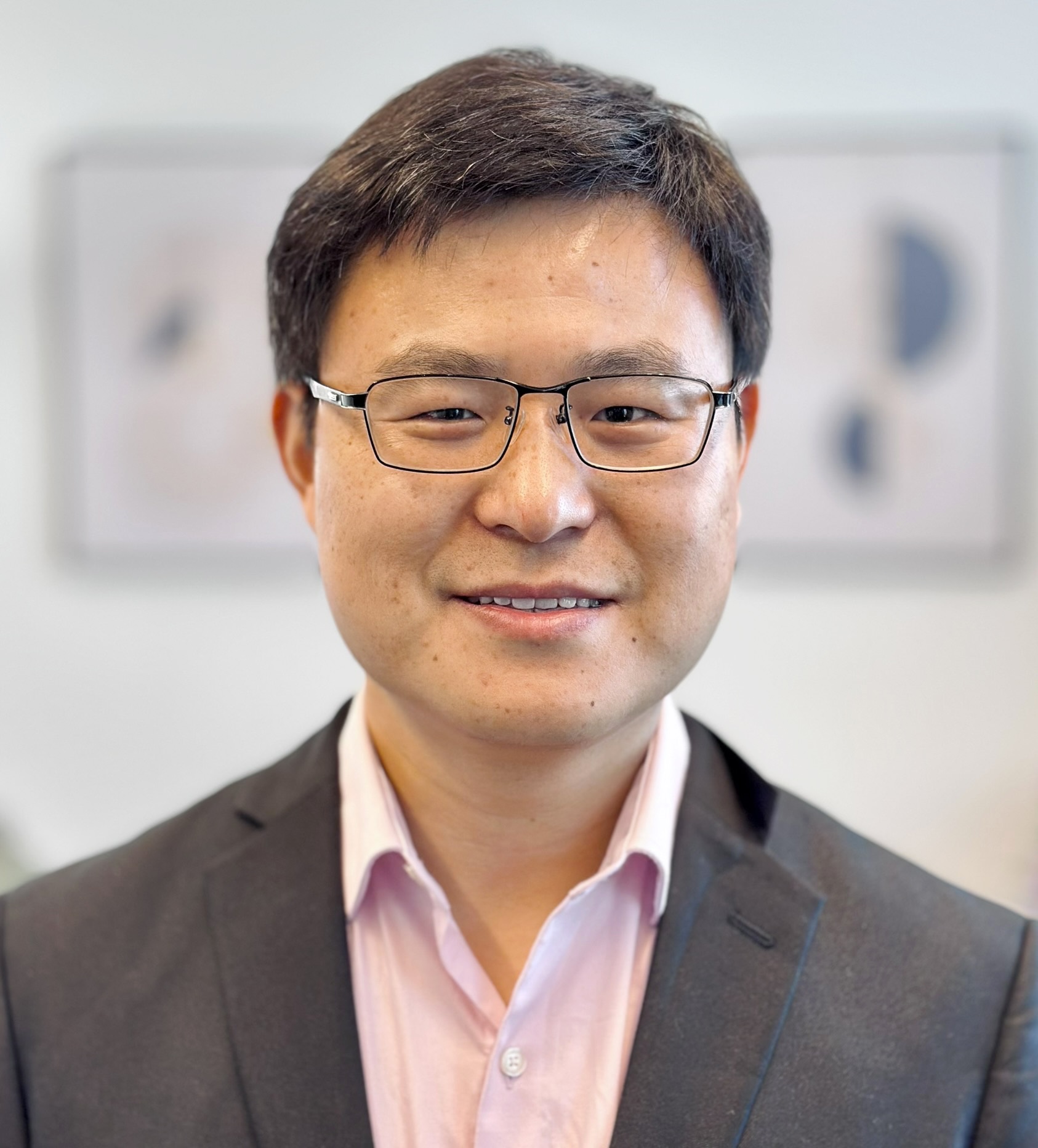
The Wang Lab

Meng Wang, PhD
Assistant Professor, Georgia Cancer Center (GCC)
Primary Area of Interest
- Cancer genomics, evolution, and predisposition
- Population and ethnic differences in cancer
- Aging
Jump to: Research Summary Research Interests Selected Publications Research Team
Contact Us
The Meng Wang Lab
Health Sciences Campus
GCC - M. Bert Storey Research Building
1410 Laney-Walker Blvd., CN-2125H1
(706) 721-1755
Research Summary
I obtained my Ph.D. in Genetics from the Shanghai Institutes for Biological Sciences, Chinese Academy of Sciences, and subsequently completed postdoctoral training at the Harvard T.H. Chan School of Public Health and the University of California, San Francisco. My primary research focus is on uncovering the molecular basis of cancer development. Our work has identified genes that are probable novel drivers of acral and mucosal melanomas and demonstrated that the evolutionary trajectory of acral melanoma differs markedly from that of melanomas arising in sun-exposed skin. In addition, I have experience of studying the role of ribosomal RNA gene (rDNA) arrays in aging and tumorigenesis, as well as broader topics in genomics, including alternative mRNA splicing.
Research Interests/Current Projects
- Cancer Diseases of Interest
Melanoma, soft tissue and bone cancers (sarcomas), lung cancer etc. - Other Diseases of Interest
Bloom Syndrome, Werner Syndrome
- Research Methodologies
Multi-omics approach integrating short- and long-read sequencing across the genome, transcriptome, and epigenome.
Project 1:
Early evolution and spatial architecture of rare melanoma subtypes
Acral and mucosal melanomas are biologically distinct from cutaneous melanomas, exhibiting unique patterns of early evolution, spatial heterogeneity, and genomic complexity. A striking feature of these rare melanoma subtypes is the frequent presence of complex genomic aberrations, which we termed “hailstorms”, which often amplifies multiple oncogenes, such as TERT, CCND1, GAB2, CDK4 and CRKL, at very early stages of tumorigenesis (Wang et al, Nature Communications, 2024). Notably, such alterations can be detected in morphologically normal-appearing melanocytes, or “field cells,” which clonally expand across large areas of skin before visible tumor formation. We also found that early clonal divergence is common in acral melanoma, with highly distinct subclones coexisting within the primary tumor. To dissect the basis of this early evolution and clonal heterogeneity, we are applying an integrated approach that combines multi-regional sequencing with spatial transcriptomics approaches. Through this work, we aim to gain new insights into the earliest steps of melanoma development.
Project 2:
The genomic and evolutionary differences of melanoma and other cancers across populations
Understanding how the cancer genomic landscape varies across populations is critical for developing tailored therapeutic strategies. In melanoma, mutational processes such as UV-induced DNA damage are well characterized in Caucasian patients. However, alternative mechanisms may play larger roles in other populations, where environmental exposures and underlying genomic contexts differ. To address this, we are investigating the genetic differences of cutaneous melanomas in patients from non-Caucasian backgrounds. This work seeks to comprehensively characterize genomic alterations in cutaneous melanoma from diverse patient populations, with the long-term goal of generating a genomic framework that better reflects patient diversity and supports efforts to address disparities in outcomes. Beyond melanoma, we are broadly interested in applying these approaches to other cancer types to uncover shared and distinct evolutionary principles.
Project 3:
Other directions in cancer genomics
We are also broadly interested in applying computational approaches to study cancer genomics. One area of interest is investigating how repetitive DNA elements, such as microsatellites, telomeric repeats, and rDNA arrays, are maintained or destabilized during cancer progression, and how their disruption contributes to genome-wide instability, tumor evolution, and therapeutic vulnerability. To address this, we combine analyses of public datasets with newly generated short- and long-read whole-genome sequencing data, enabling a comprehensive assessment of repeat element dynamics in cancer.
Selected Publications
-
Wang M, Fukushima S, Sheen Y-S, Ramelyte E, Cruz-Pacheco N, Shi C, Liu S, Banik I, Aquino JD, Sangueza Acosta M, Levesque M, Dummer R, Liau J-Y, Chu C-Y, Shain AH, Yeh I, Bastian BC. The genetic evolution of acral melanoma. Nat Commun 2024;15:6146. https://doi.org/10.1038/s41467-024-50233-z.
-
Lorbeer FK, Rieser G, Goel A, Wang M, Oh A, Yeh I, Bastian BC, Hockemeyer D. Distinct senescence mechanisms restrain progression of dysplastic nevi. PNAS Nexus 2024;3:pgae041. https://doi.org/10.1093/pnasnexus/pgae041.
-
Wang M, Banik I, Shain AH, Yeh I, Bastian BC. Integrated genomic analyses of acral and mucosal melanomas nominate novel driver genes. Genome Med 2022;14:65. https://doi.org/10.1186/s13073-022-01068-0.
-
Tao T, Shi H, Wang M, Perez-Atayde AR, London WB, Gutierrez A, Lemos B, Durbin AD, Look AT. Ganglioneuromas are driven by activated AKT and can be therapeutically targeted with mTOR inhibitors. J Exp Med 2020;217:e20191871. https://doi.org/10.1084/jem.20191871.
-
Jing C-B, Fu C, Prutsch N, Wang M, He S, Look AT. Synthetic lethal targeting of TET2-mutant hematopoietic stem and progenitor cells (HSPCs) with TOP1-targeted drugs and PARP1 inhibitors. Leukemia 2020;34:2992–3006. https://doi.org/10.1038/s41375-020-0927-5.
-
Wang M, Lemos B. Ribosomal DNA harbors an evolutionarily conserved clock of biological aging. Genome Res 2019;29:325–33. https://doi.org/10.1101/gr.241745.118.
-
Wang M, Branco AT, Lemos B. The Y Chromosome Modulates Splicing and Sex-Biased Intron Retention Rates in Drosophila. Genetics 2018;208:1057–67. https://doi.org/10.1534/genetics.117.300637.
-
Wang M, Lemos B. Ribosomal DNA copy number amplification and loss in human cancers is linked to tumor genetic context, nucleolus activity, and proliferation. PLOS Genetics 2017;13:e1006994. https://doi.org/10.1371/journal.pgen.1006994.
-
Wang M, Zhang P, Shu Y, Yuan F, Zhang Y, Zhou Y, Jiang M, Zhu Y, Hu L, Kong X, Zhang Z. Alternative splicing at GYNNGY 5′ splice sites: more noise, less regulation. Nucleic Acids Res 2014;42:13969–80. https://doi.org/10.1093/nar/gku1253.
Research Team
TBA
Reduce the Burden
The Georgia Cancer Center at Augusta University is dedicated to reducing the burden of cancer in Georgia and across the globe through superior care, innovation, and education. Through unprecedented expansion, the Georgia Cancer Center is providing access to more first-in-the-nation clinical trials, world-renowned experts and life-saving options.
Follow the Georgia Cancer Center